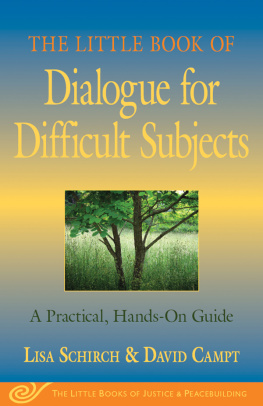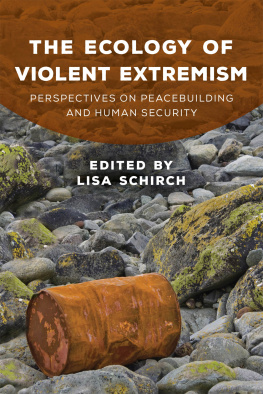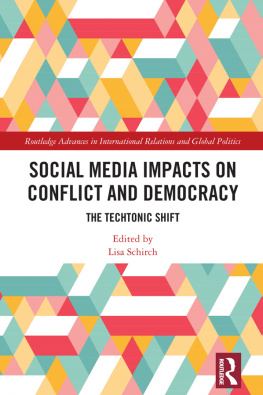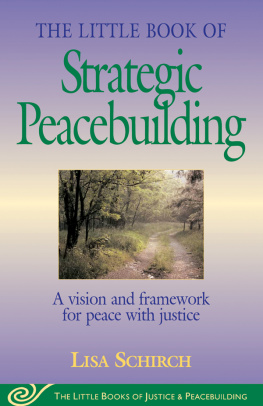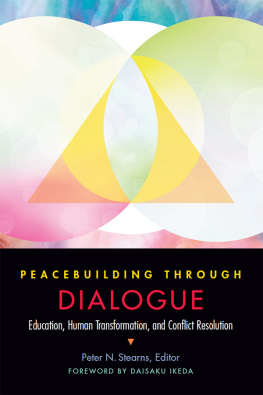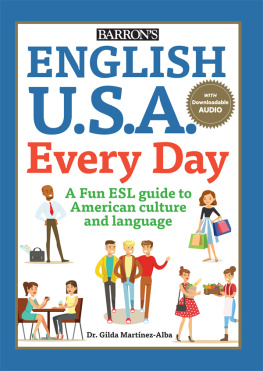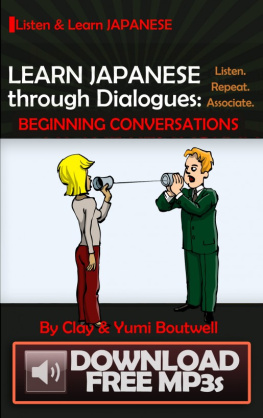
Published titles include:
The Little Book of Restorative Justice , by Howard Zehr
The Little Book of Conflict Transformation , by John Paul Lederach
The Little Book of Family Group Conferences, New-Zealand Style, by Allan MacRae and Howard Zehr
The Little Book of Strategic Peacebuilding , by Lisa Schirch
The Little Book of Strategic Negotiation , by Jayne Seminare Docherty
The Little Book of Circle Processes , by Kay Pranis
The Little Book of Contemplative Photography , by Howard Zehr
The Little Book of Restorative Discipline for Schools , by Lorraine Stutzman Amstutz and Judy H. Mullet
The Little Book of Trauma Healing , by Carolyn Yoder
The Little Book of Biblical Justice , by Chris Marshall
The Little Book of Restorative Justice for People in Prison , by Barb Toews
El Pequeo Libro De Justicia Restaurativa , by Howard Zehr
The Little Book of Cool Tools for Hot Topics , by Ron Kraybill and Evelyn Wright
The Little Book of Dialogue for Difficult Subjects , by Lisa Schirch and David Campt
The Little Book of Victim Offender Conferencing , by Lorraine Stutzman Amstutz
The Little Book of Healthy Organizations , by David R. Brubaker and Ruth Hoover Zimmerman
The Little Books of Justice & Peacebuilding present, in highly accessible form, key concepts and practices from the fields of restorative justice, conflict transformation, and peacebuilding. Written by leaders in these fields, they are designed for practitioners, students, and anyone interested in justice, peace, and conflict resolution.
The Little Books of Justice & Peacebuilding series is a cooperative effort between the Center for Justice and Peacebuilding of Eastern Mennonite University (Howard Zehr, Series General Editor) and publisher Good Books (Phyllis Pellman Good, Senior Editor).
Cover photograph by Howard Zehr
Cover design by Dawn J. Ranck
Interior design by Cliff Snyder
THE LITTLE BOOK OF DIALOGUE FOR DIFFICULT SUBJECTS
Copyright 2007 by Good Books, Intercourse, PA 17534
International Standard Book Number: 978-1-56148-551-2
Library of Congress Catalog Card Number: 2007038694
All rights reserved. Printed in the United States of America.
No part of this book may be reproduced in any manner, except for brief quotations in critical articles or reviews, without permission.
Library of Congress Cataloging-in-Publication Data
Schirch, Lisa.
The little book of dialogue for difficult subjects : a practical, hands-on guide / by Lisa Schirch and David Campt.
p. cm.
Includes bibliographical references.
ISBN 978-1-56148-551-2 (pbk. : alk. paper) 1. Interpersonal communication. 2. Interpersonal relations. 3. Interpersonal conflict. I. Campt, David W. II. Title.
HM1166.S34 2007
Table of Contents
Acknowledgments
We offer a joint thank you to Hope in the Cities (HIC) in Richmond, Virginia, who hired us to co-facilitate their series of dialogues on race, economics, and jurisdiction issues. The values and vision of HIC inspire us both and we are grateful for the opportunity to work with them.
Lisa: I would like to thank my students and colleagues at the Center for Justice & Peacebuilding at Eastern Mennonite University (EMU). Over the last 10 years, as I have facilitated countless meetings on a variety of issues at EMU, my colleagues have offered helpful feedback to strengthen my facilitator skills. I have also learned a great deal by observing them facilitate dialogues on difficult subjects in which I was a participant. Along the way Ive learned from them how to honestly own what I know and what I dont know, what I am skilled at, and where I can improve. Im grateful for those colleagues who have nurtured this self-knowledge.
David: I would like to thank a collection of people, beginning with my numerous colleagues at America-Speaks, an organization that has given me the opportunity to develop my leadership skills. Im convinced that I couldnt have co-written this book without the stimulating feedback and encouraging fellowship of Cricket White, Manny Brandt, and Theo Brown. They have inspired me to do more and learn more in the areas of dialogue. I also offer special gratitude to Moniqie Fortenberry and Ngozi Robinson, who in their unique ways have helped me maintain my sanity while making progress. And finally, nothing in my lifeespecially my passion for dialoguewould have happened without my parents, James and Geraldine Campt.
Defining Dialogue
M ost of us, if not all, can recall an uncomfortable moment at a holiday gathering when the conversation turned divisively to religion, politics, or current events. Or we have sat in a meeting or in a Sunday school class and felt tensions rising among participants. Is it just impossible for people to talk comfortably about some subjects?
Dialogue is a process for talking about tension-filled topics. It is useful for families, small groups, businesses, communities, organizations, and national and international conflicts.
Increasingly, people are seeing the need for better ways of talking. After the tragic events of September 11, 2001, community groups in various regions of the United States met to discuss that days impact on their lives and how they might work together to prevent retaliatory violence against Muslims in their community. Other communities are using dialogue to identify guiding values for city planning and development in rapidly growing regions. In still other places, people are using dialogue to help talk about religious differences on homosexuality, community problems like youth obesity, or racial divisions among community members. In war zones, diplomats are using dialogue to explore political solutions to end civil violence.
These examples illustrate how people use dialogue to heal deep divisions or wounds from the past, avert impending violence, discuss an upcoming policy decision, or address a community challenge. People are turning to dialogue because other forms of communication fail to provide the structure or safety required for discussing difficult subjects. Dialogue helps people communicate with each other as they constructively search for creative solutions to community challenges. Dialogue is an important part of solving difficult problems and transforming relationships between adversaries.
Dialogue: A Different Kind of Communication
Definitions of dialogue abound. In popular usage, dialogue can include almost any type of verbal exchange. In Latin, dialogue refers to a conversation between two or more people, usually across lines of conflict or potential conflict. In this book, the term takes on a more specific definition.
Dialogue aims to build relationships between people as they address a common concern.
Dialogue is a communication process that aims to build relationships between people as they share experiences, ideas, and information about a common concern. It also aims to help groups take in more information and perspectives than they previously had as they attempt to forge a new and broader understanding of a situation.
One way to define dialogue is to contrast it with other important and commonly used communication styles. Dialogue is different from conversation , discussion , training or education , and debate .

